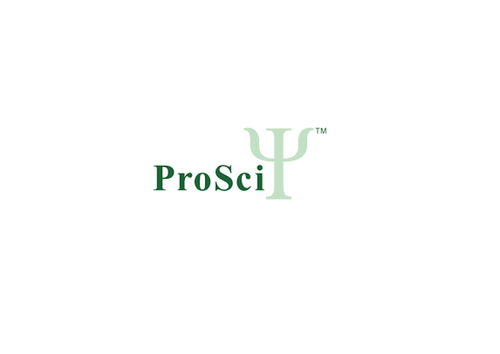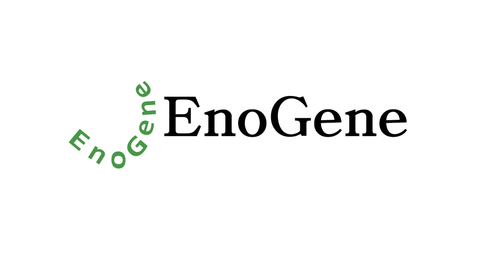Product Description
TRIM32 Antibody | 28-983 | ProSci
Host: Rabbit
Reactivity: Human
Homology: N/A
Immunogen: Antibody produced in rabbits immunized with a synthetic peptide corresponding a region of human TRIM32.
Research Area: Transcription, Cancer
Tested Application: E, WB
Application: TRIM32 antibody can be used for detection of TRIM32 by ELISA at 1:62500. TRIM32 antibody can be used for detection of TRIM32 by western blot at 1.25 μg/mL, and HRP conjugated secondary antibody should be diluted 1:50, 000 - 100, 000.
Specificiy: N/A
Positive Control 1: Cat. No. 1205 - Jurkat Cell Lysate
Positive Control 2: N/A
Positive Control 3: N/A
Positive Control 4: N/A
Positive Control 5: N/A
Positive Control 6: N/A
Molecular Weight: 72 kDa
Validation: N/A
Isoform: N/A
Purification: Antibody is purified by protein A chromatography method.
Clonality: Polyclonal
Clone: N/A
Isotype: N/A
Conjugate: Unconjugated
Physical State: Liquid
Buffer: Purified antibody supplied in 1x PBS buffer with 0.09% (w/v) sodium azide and 2% sucrose.
Concentration: batch dependent
Storage Condition: For short periods of storage (days) store at 4˚C. For longer periods of storage, store TRIM32 antibody at -20˚C. As with any antibody avoid repeat freeze-thaw cycles.
Alternate Name: TRIM32, HT2A, BBS11, TATIP, LGMD2H
User Note: Optimal dilutions for each application to be determined by the researcher.
BACKGROUND: TRIM32 is a member of the tripartite motif (TRIM) family. The TRIM motif includes three zinc-binding domains, a RING, a B-box type 1 and a B-box type 2, and a coiled-coil region. TRIM32 localizes to cytoplasmic bodies. The protein has also been localized to the nucleus, where it interacts with the activation domain of the HIV-1 Tat protein. The Tat protein activates transcription of HIV-1 genes.The protein encoded by this gene is a member of the tripartite motif (TRIM) family. The TRIM motif includes three zinc-binding domains, a RING, a B-box type 1 and a B-box type 2, and a coiled-coil region. The protein localizes to cytoplasmic bodies. The protein has also been localized to the nucleus, where it interacts with the activation domain of the HIV-1 Tat protein. The Tat protein activates transcription of HIV-1 genes.
 Euro
Euro
 USD
USD
 British Pound
British Pound
 NULL
NULL














